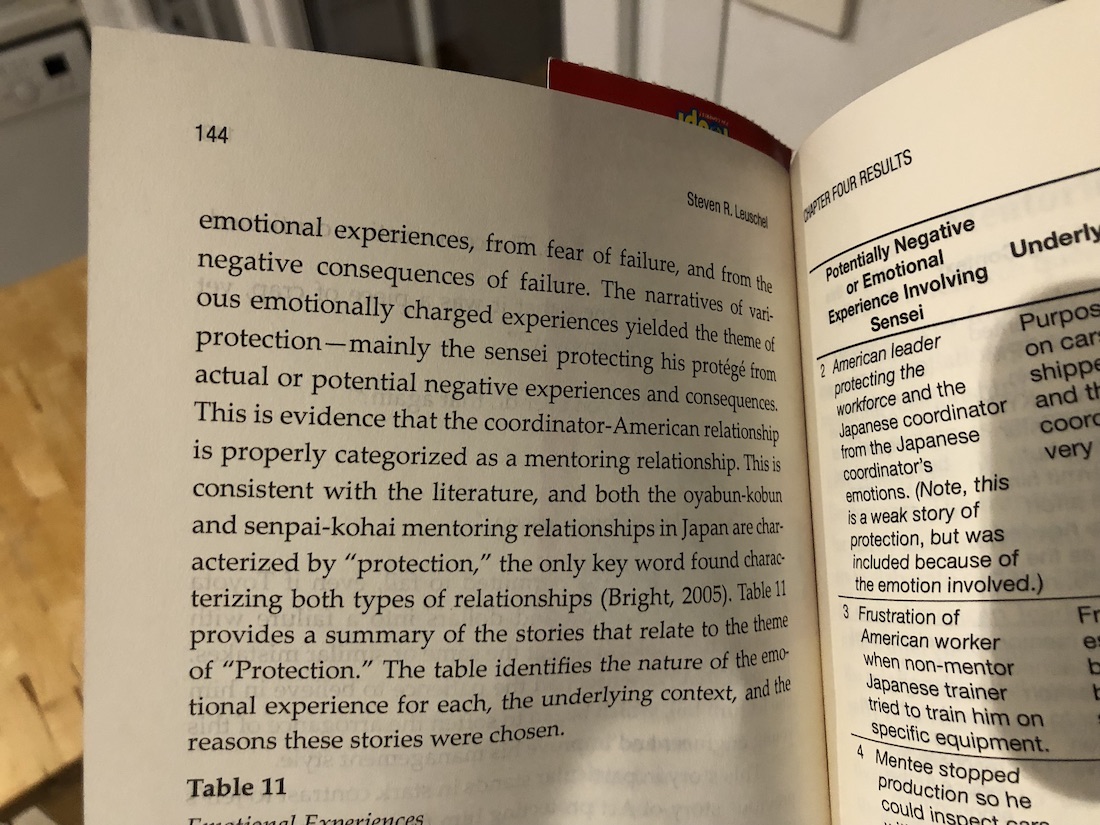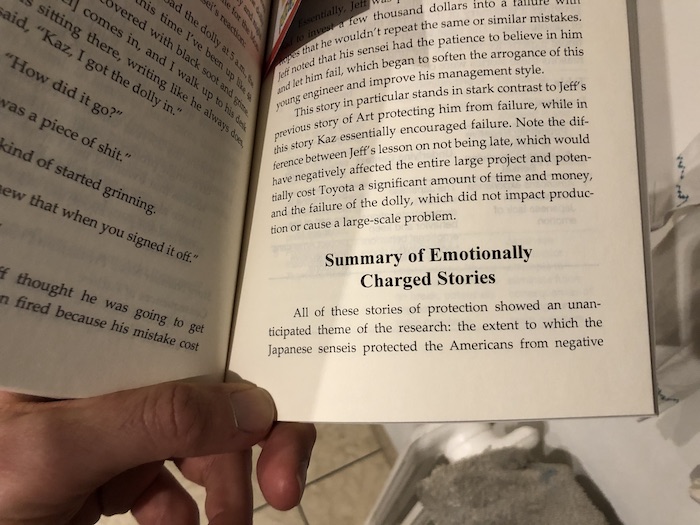When Google published the result of its Project Aristotle back in 2016 on what made great teams, a concept stood out : psychological safety. That’s when "team members feel safe to take risks and be vulnerable in front of each other". It was the number one factor in their original paper.
After the successful NUMI experiment, Toyota decided to build its own plant in the US in the early 1980’s, Georgetown - Kentucky was chosen and a group of mentors (ie. senseis) was sent from Japan to teach, train and guide the newly recruited management team.
Steven R. Leuschel went back to this group of American employees in order to gather their views 30 years later for his PhD. The book Sensei Secrets: Mentoring at Toyota Georgetown was the end result. And guess what: it’s the notion of protection that stands out.

Monday morning, we unload the dolly at 5 a.m., the trial started at 7, by this time I've been up like 48 hours and I was covered with black soot and grime. So [my sensei] comes in, and I walk up to his desk and he is sitting there, writing like he always does, and I said, "Kaz, I got the dolly in."
He said, "How did it go?"
I said, "It was a piece of shit."
And he just kind of started grinning.
I said, "You knew that when you signed it off."
He said, "Yeah."
At this point, Jeff thought he was going to get screamed at or even fired because his mistake cost a few thousand dollars. The conversation contined:
He said, "You knew that is was a piece of crap, yet you let me do it anyway?"
Kas said, "Will you ever do that again?"
"Hell no!"
Kas smiled. "Cheap lesson."

All these stories of protection showed an unanticipated them of the research: the extent to which the Japanese senseis protected the Americans from negative emotional experiences, from fear of failure, and from the negative consequences of failure.
If it’s not a path to psychological safety, I don’t know what is!

